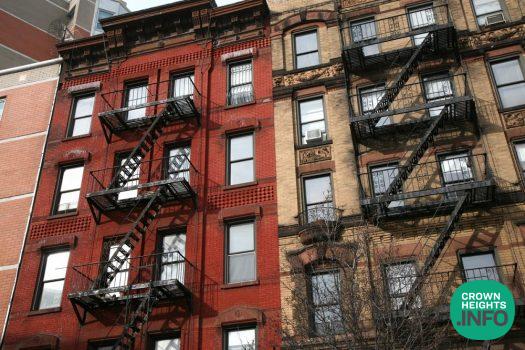
Attorney General James Secures $4 Million from Landlords After Uncovering an Illegal Kickback Scheme to Deregulate Rent-Stabilized Apartments
New York Attorney General Letitia James today announced she has secured $4 million from a group of 29 New York City landlords after uncovering an illegal kickback scheme by the management companies they employed to deregulate hundreds of rent-stabilized apartments in New York City. The Office of the Attorney General (OAG) reached a settlement with 29 LLCs (the owners) affiliated with Sentinel Real Estate Corporation for wrongdoing committed by employees at the now-defunct property management firms the owners used: Newcastle Realty Services, LLC (Newcastle) and Highcastle Management, LLC (Highcastle). Newcastle and Highcastle inflated and falsely stated renovation costs for rent-stabilized apartments in an attempt to deregulate them and their employees accepted more than $1 million in kickbacks from contractors in exchange for hiring them on renovation jobs. The owners failed to provide sufficient oversight of Newcastle’s and Highcastle’s practices.
“Our rent stabilization laws exist to protect the rights and homes of New York tenants, and this deregulation scheme proves they exist for good reason,” said Attorney General James. “Newcastle and Highcastle made themselves millionaires while kicking hundreds of rent-stabilized apartments off the market, all while under the lax oversight of these property owners. We’re making sure they pay their fair share, and I’m proud to have secured $4 million to preserve affordable housing in New York City.”
Newcastle and Highcastle illegally deregulated rent-stabilized units in the owners’ buildings located in Brooklyn and Manhattan. Prior to June of 2019, if owners made improvements to rent-stabilized units, they could increase the rent of those units by a fraction of the cost of the improvements that were made, through a system known as Individual Apartment Improvements (IAIs). Some property owners and landlords used IAIs to increase rents enough to bring them over the deregulation threshold established by those laws, thereby converting them to market-rate units and maximizing the buildings’ market values.
The owners involved in this settlement utilized a similar investment strategy, and Newcastle and Highcastle helped them carry it out by falsifying the costs of IAIs. Newcastle and Highcastle allocated construction expenses among units to achieve deregulation, inflated costs for renovation jobs, and included the kickbacks they received from contractors in the charges reported for certain units.
As part of their scheme, Newcastle and Highcastle would intentionally set the cost of labor for a renovation project to be equivalent to the amount necessary to deregulate that particular unit, regardless of the quote provided by the contractor. For example, an apartment in one building required $38,000 in IAIs to get over the deregulation threshold, while another apartment in the same building required $52,500 to deregulate. Both units received nearly identical renovations, but Newcastle and Highcastle reported the renovation expenses at $52,500 and $38,000, respectively, so they could deregulate the units and rent them at the market rate.
Newcastle and Highcastle often assigned falsely inflated costs to apartment renovations and would inconsistently allocate costs from lump sum renovations impacting an entire building to different units, all to aid in reaching the units’ respective deregulation thresholds. Newcastle and Highcastle once hired a contractor to renovate nine apartments, all with identical scopes of work. Rather than split the cost evenly among the apartments, Newcastle and Highcastle reported $14,500 in labor costs for a gut renovation to a high-rent one-bedroom apartment, and $95,000 in labor costs for a gut renovation to a low-rent studio apartment, when in reality, the labor costs were basically equivalent. Further evidence shows these false allocations were not limited to multiple apartments in a single building, but also in multiple apartments across multiple buildings.
In multiple instances where labor costs were not sufficient to deregulate a unit through the IAI system, Newcastle and Highcastle would create false orders on a contractor’s letterhead stating more work was required for an additional cost. The contractors in these scenarios did not actually have more work to do, nor did they request more money, but Newcastle and Highcastle needed to report that a higher amount had been spent to deregulate the unit.
In exchange for awarding repeated renovations jobs to certain contractors, Newcastle and Highcastle employees received more than $1 million in kickbacks from contractors in exchange for being awarded jobs at the owners’ buildings. They hid these bribes by reporting the amount as included in the amount spent on IAIs: if labor costs for a job were $45,000 and the employees received $5,000 as a kickback, they reported the renovation investment in the unit as $50,000.
In May 2019, the Office of the Attorney General (OAG) filed a lawsuit against former longtime Newcastle employee David Drumheller for his role in this scheme. Through investigations pertaining to the lawsuit, OAG determined the owners failed to detect or stop Newcastle and Highcastle’s illegal scheme, resulting in this settlement announced today.
As part of the settlement, the owners paid $4 million to Attorney General James’ Affordable Housing Fund with the New York City Department of Housing Preservation and Development (HPD), which preserves and expands affordable housing in New York City. They have also engaged an independent auditor to evaluate the regulated status and legal regulated rents of the apartments previously managed by Newcastle and Highcastle. Following completion of the auditor’s evaluation, the owners will follow protocols set forth by OAG to reset legal rents, offer rent stabilized leases, and refund current tenants for overcharges, as necessary. Finally, the owners must implement new institutional practices to ensure legally compliant ownership and management of rent-regulated apartments.













